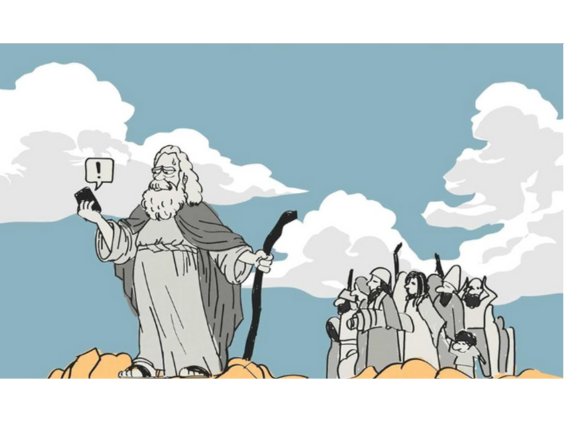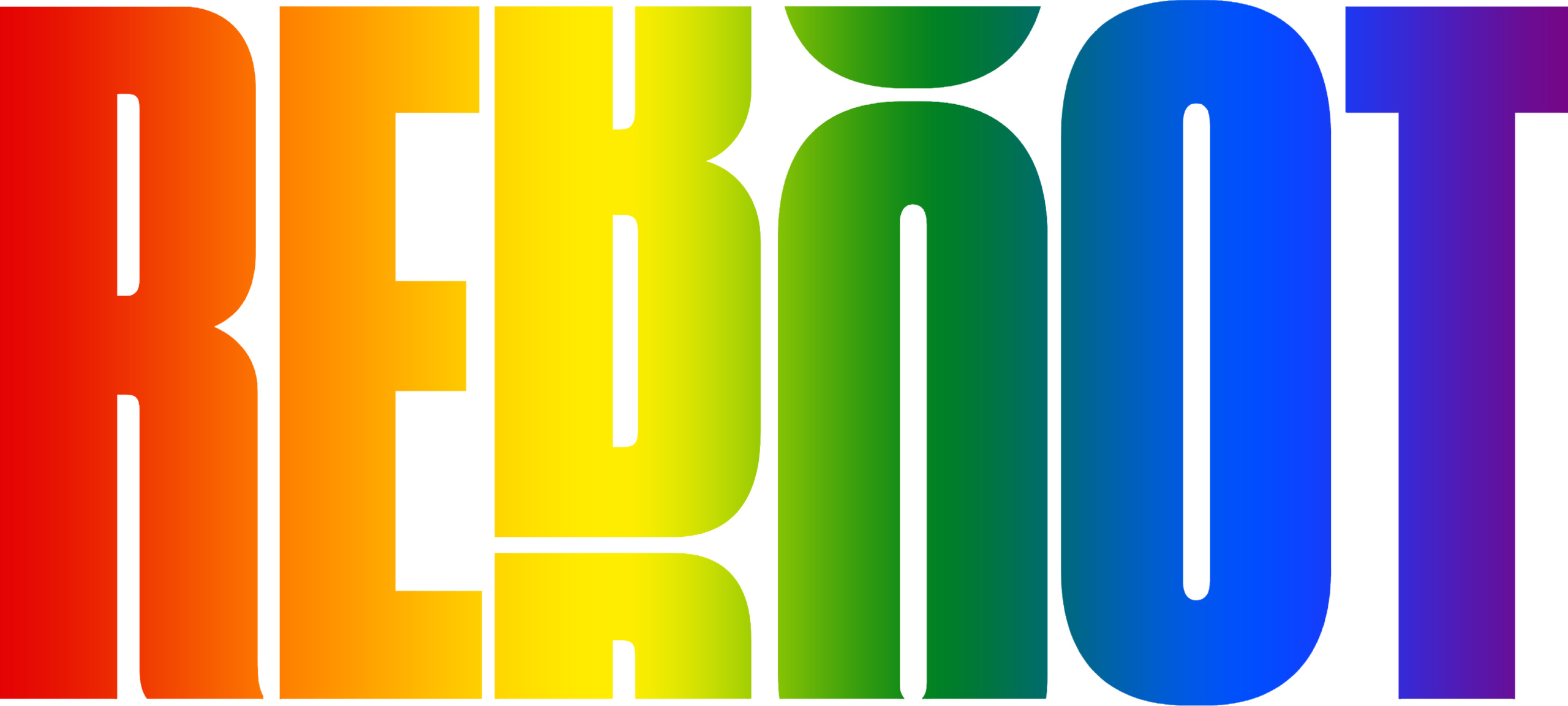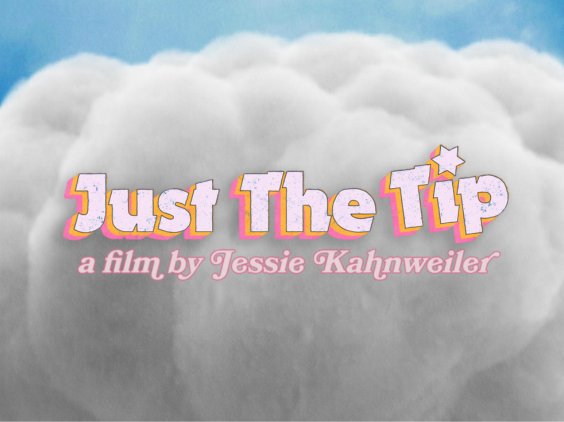Turning Tragedy into Comedy the Jewish Way: 5,000 Years and Counting

I don’t know where I ever got the idea that writing about Jewish history would be easy.
Maybe that’s actually the funniest joke in the entire book I just came out with,The Jews: 5,000 Years and Counting, a comedic survey of all of Jewish history.
I mean, it is an intimidating task. Millennia of history, much of it undocumented, spanning countless countries, many of which no longer exist. Multiple languages, dialects, alphabets, the majority lacking vowels. Oh yeah, and the pesky little fact that no two Jews can ever agree on what happened.
But ultimately, this boiled down to a series of intellectual decisions. What to keep in, what to leave out, how big or small to go, where to draw lines chronological, geographical, theological. Fortunately, if there’s one thing a Jewish male of over 8 days old is not afraid of, it’s cuts.
Still, what about making this comedic? Sure, there’s no question Jews are funny. But some of the things that have happened to us? Not so much.
Nonetheless, I could bring my training to that. I’d written thousands of jokes for late-night hosts like Jon Stewart and Conan O’Brien, finding a way to wrench some levity out of the most depressing developments in politics. I felt like I could find something to poke fun at in almost every Jewish historical topic (Yes, even that one. See pp. 167-168).
So I made those early tough calls, got researching, hashed out tone with my editor, conceived of and assigned artwork, and started typing. And, the book started to take shape! I was trudging my way through like an Israelite in the temporarily dried Red Sea, surrounded by walls of ocean and with merciless taskmasters at my back. I’d taken on all the big things, found ways to talk about the difficult ones, and sought out fresh perspectives on petrified ones. I was on schedule about 75% through, and just about to round third base and make that last madcap sprint into the home base of the 20th-21st centuries.
Then October 7, 2023 happened. Nothing else needs to be said about what a strange time that day ushered in. For me, it was even stranger. I wasn’t in my kosher home in my heavily Jewish neighborhood of Los Angeles, regularly bumping into and schmoozing with my yids. I was in the middle of a three-week writers’ room in deepest, rurallest Louisiana. No IRL access to my kids or my shul, no way to experience the aftershocks this was sending through the Jewish community, or come together with others helping out.
So I was processing this unthinkable nightmare alone, out of my typical Jewish support network, trying to get any and all info from friends in Israel, WhatsApp chats, and Tweets. But the hardest part of all for me was: What the f*&k do I write now?!” After weeks and weeks of diligently showing up behind the keys I just … froze. To be clear, this isn’t “writer’s block.” You don’t get to write late-night shows for 20 years if you haven’t figured out workarounds for that. Nor is it “writer’s procrastination,” a practice I might as well have a PhD in.
I just didn’t know how I could write anything about Jewish history, because all of a sudden, I felt like I had no idea what Jewish history was. At very least, we had all just been horrifically reminded that it was certainly not static. In some ways, that kind of thinking had underlain some of the book’s comedic subtext: “Well, heh heh, I guess all those bad things did happen, but at least it worked out in the end…”
Well, what was the end here? Would there even be one? It sure as hell felt more like the beginning of something with no shape, predictable path, or honestly, hope. How does one write about that, for a book that would be coming out a year later – an eternity even for a book not about one of the historically most volatile places on Earth. Oh yeah, and while working a few guffaws in there too?
So I took a little time off. And again, not just the more typical writers’ time-wasting approach: “Hey, I really need to alphabetize all my old NES cartridges right now instead of this.” I just did whatever I had to do, as so many of us did, in that time – to try and be there for my people. I tried to come back to the book, many times, from many angles. But every tentative thread-poke into this tapestry threatened to unravel dozens more. What story could I possibly hope to tell (facetious or not, there’s still a real story) about Israelis, Palestinians, the Jewish people, the world, when I had no clue where it was going or – in many cases – what I even thought or believed anymore?
Finally, it was my editor who rescued me (and the book). He’s Jewish too – it was his Jewish publishing house that hired me to write this in the first place. Yet it took surprisingly long for me to tell him what was burdening me. The words I’m about to pen here may sound unconscionably glib. Let me tell you, they literally revived the book and jump-started my brain into a new way to think about all this. Here’s what my editor said: “We’ve been through worse. We’re not going anywhere.”
And he was right, of course. I started leafing through the previous chapters. Take out the place/name/date tidbits (and the jokes), and Jewish history is often just an endless catalogue of misery. The scholar Arnold Toynbee never actually said the famous quote, “History is just one damn thing after another.” But that’s only because he didn’t write about Jews. However, what I also saw was that there was always another chapter.
Not only were we Jews “not going anywhere,” we’ve continued to grow, pivot, and flourish even in the face of every pressure not to. Learning about, arguing about, and yes, even joking about the worst things that have been done to us (and sometimes by us) can all be invaluable steps forward on our people’s never-ending mission to try and make things better.
As utterly broken as I and so many people have been left by October 7 and its results, taking a step back into the much, much bigger picture of Jewish history offers, if not exactly relief, then at least a cooling wave of perspective.
Now, as far as how I handled it in the book… I tried playing around with some meta-historical perspectives, tried to incorporate multiple points of view on the conflict, to find some point of human experience to latch on to that could be turned to humor. And in the end, I decided not to. October 7 is mentioned twice, within other contexts, and that’s about it, for now. Because what I learned from this experience is that history is too hard to get a good grasp on when you’re too close to it. Unfortunately, we’ve all been way up in the eye of this storm the past year and a half.
Fortunately, Jewish history is so vast, we know that whatever happens, one day we will be able to tell a story about it. And maybe even a joke.
Rob Kutner is an Emmy-winning TV writer for shows like “The Daily Show” and “CONAN,” and the author of six books, including the NYT-bestselling Marvel “Ant-Man memoir” Look Out for The Little Guy. In his spare time, he puts on Purim spiels.




